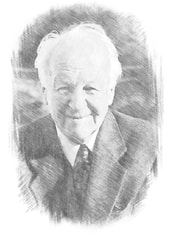John Stott
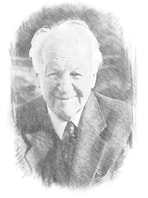
John Robert Walmsley Stott CBE (27 April 1921 – 27 July 2011) was an English Anglican cleric and theologian who was noted as a leader of the worldwide evangelical movement. He was one of the principal authors of the Lausanne Covenant in 1974. In 2005, Time magazine ranked Stott among the 100 most influential people in the world.
 John Stott
John Stott
"Here, then, is the crucial question which we have been leading up to. Have we ever opened our door to Christ? Have we ever invited him in? This was exactly the question which I needed to have put to me. For, intellectually speaking, I had believed in Jesus all my life, on the other side of the door. I had regularly struggled to say my prayers through the key-hole. I had even pushed pennies under the door in a vain attempt to pacify him. I had been baptized, yes and confirmed as well. I went to church, read my Bible, had high ideals, and tried to be good and do good. But all the time, often without realizing it, I was holding Christ at arm's length, and keeping him outside. I knew that to open the door might have momentous consequences. I am profoundly grateful to him for enabling me to open the door. Looking back now over more than fifty years, I realize that that simple step has changed the entire direction, course and quality of my life" --John Stott ;While at Rugby School in 1938, Stott heard Eric Nash (nicknamed "Bash") deliver a sermon entitled "What Then Shall I Do with Jesus, Who Is Called the Christ?" After this talk, Nash pointed Stott to Revelation 3:20, "Behold, I stand at the door, and knock: if any man hear my voice, and open the door, I will come in to him, and will sup with him, and he with me." Stott described the impact this verse had upon him.
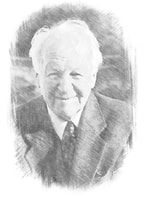 John Stott
John Stott
“[Christian rebellion] arises from the doctrine of mankind made in the image of God, and therefore protests against all forms of dehumanization. It sets itself against the social injustices which insult God the Creator, seeks to protect human beings from oppression and longs to liberate them… it protests against every authoritarian regime, whether of the left or of the right, which discriminates against minorities, denies people their civil rights, forbids the free expression of opinions or imprisons people for their views alone.”
― John Stott
― John Stott
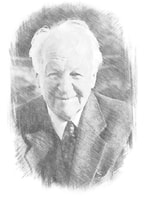 John Stott
John Stott
“Jesus Christ is indeed a crutch for the lame, to help us walk upright, just as he is also medicine for the spiritually sick, bread for the hungry and water for the thirsty. We do not deny this; it is perfectly true. But then all human beings are lame, sick, hungry and thirsty. The only difference between us is not that some are needy, while others are not. It is rather that some know and acknowledge their need, while others either don't through ignorance or won't through pride.” ― John Stott
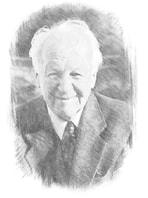 John Stott
John Stott
“The hallmark of authentic evangelicalism is not that we maintain the traditions of the evangelical elders. It is rather that we are prepared to reexamine even the most long-standing evangelical traditions in the light of Scripture, in order to allow Scripture, if necessary, to judge and reform our traditions. Evangelical traditions are not infallible; they need to be reexamined. They need to be judged. They need to be reformed.”
--John Stott
 John Stott
John Stott
“We must allow the Word of God to confront us, to disturb our security, to undermine our complacency and to overthrow our patterns of thought and behavior.”
― John Stott
“I think the great difficulty any Christian communicator or preacher has today is to have the courage to face the applications of Scripture in their own lives.”
--John Stott
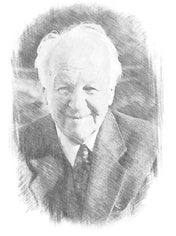 John Stott
John Stott
“Jesus never concealed the fact that his religion included a demand as well as an offer. Indeed, the demand was as total as the offer was free. If he offered men his salvation, he also demanded their submission. He gave no encouragement whatever to thoughtless applicants for discipleship. He brought no pressure to bear on any inquirer. He sent irresponsible enthusiasts away empty. Luke tells of three men who either volunteered, or were invited, to follow Jesus; but no one passed the Lord’s test. The rich young ruler, too, moral, earnest and attractive, who wanted eternal life on his own terms, went away sorrowful, with his riches intact but with neither life nor Christ as his possession…The Christian landscape is strewn with the wreckage of derelict, half built towers—the ruins of those who began to build and were unable to finish. For thousands of people still ignore Christ’s warning and undertake to follow him without first pausing to reflect on the cost of doing so. The result is the great scandal of Christendom today, so called “nominal Christianity.” In countries to which Christian civilization has spread, large numbers of people have covered themselves with a decent, but thin, veneer of Christianity. They have allowed themselves to become somewhat involved, enough to be respectable but not enough to be uncomfortable. Their religion is a great, soft cushion. It protects them from the hard unpleasantness of life, while changing its place and shape to suit their convenience. No wonder the cynics speak of hypocrites in the church and dismiss religion as escapism…The message of Jesus was very different. He never lowered his standards or modified his conditions to make his call more readily acceptable. He asked his first disciples, and he has asked every disciple since, to give him their thoughtful and total commitment. Nothing less than this will do” ― John R.W. Stott, Basic Christianity
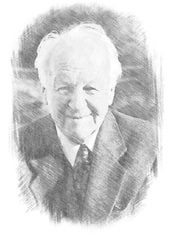 John Stott
John Stott
“God intends us to penetrate the world. Christian salt has no business to remain snugly in elegant little ecclesiastical salt cellars; our place is to be rubbed into the secular community, as salt is rubbed into meat, to stop it going bad. And when society does go bad, we Christians tend to throw up our hands in pious horror and reproach the non-Christian world; but should we not rather reproach ourselves? One can hardly blame unsalted meat for going bad. It cannot do anything else. The real question to ask is: Where is the salt?”
― John Stott
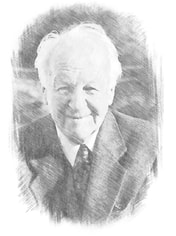 John Stott
John Stott
“It is now time for us to ask the personal question put to Jesus Christ by Saul of Tarsus on the Damascus road, ‘What shall I do Lord?’ or the similar question asked by the Philippian jailer, ’What must I do to be saved?’ Clearly we must do something. Christianity is no mere passive acquiescence in a series of propositions, however true. We may believe in the deity and the salvation of Christ, and acknowledge ourselves to be sinners in need of his salvation, but this does not make us Christians. We have to make a personal response to Jesus Christ, committing ourselves unreservedly to him as our Savior and Lord … At its simplest Christ’s call was “Follow me.” He asked men and women for their personal allegiance. He invited them to learn from him, to obey his words and to identify themselves with his cause … Now there can be no following without a previous forsaking. To follow Christ is to renounce all lesser loyalties … let me be more explicit about the forsaking which cannot be separated from the following of Jesus Christ. First, there must be a renunciation of sin. This, in a word, is repentance. It is the first part of Christian conversion. It can in no circumstances be bypassed. Repentance and faith belong together. We cannot follow Christ without forsaking sin … Repentance is a definite turn from every thought, word, deed, and habit which is known to be wrong … There can be no compromise here. There may be sins in our lives which we do not think we could ever renounce, but we must be willing to let them go as we cry to God for deliverance from them. If you are in doubt regarding what is right and what is wrong, do not be too greatly influenced by the customs and conventions of Christians you may know. Go by the clear teaching of the Bible and by the prompting of your conscience, and Christ will gradually lead you further along the path of righteousness. When he puts his finger on anything, give it up. It may be some association or recreation, some literature we read, or some attitude of pride, jealousy or resentment, or an unforgiving spirit. Jesus told his followers to pluck out their eye and cut off their hand or foot if it caused them to sin. We are not to obey this with dead literalism, of course, and mutilate our bodies. It is a figure of speech for dealing ruthlessly with the avenues along which temptation comes to us.”
― John R.W. Stott, Basic Christianity
― John R.W. Stott, Basic Christianity


